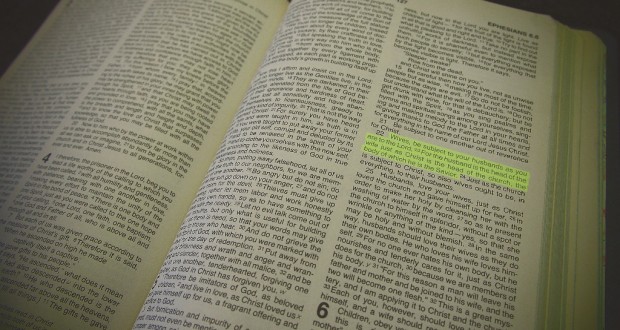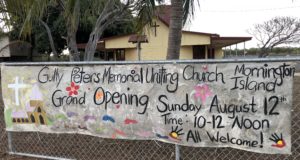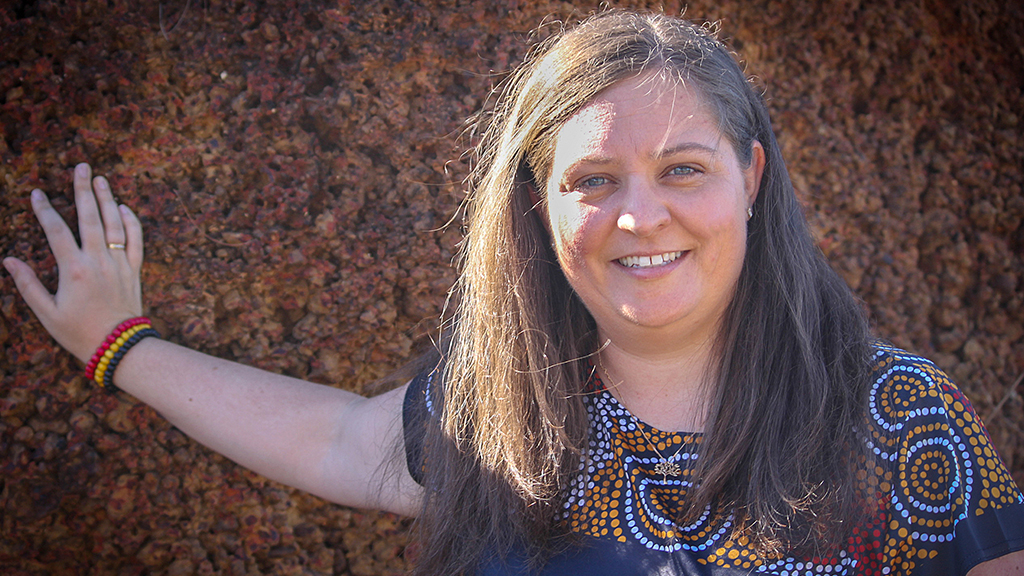Churches must tackle their own demons if the scourge of domestic violence is to be overcome, writes Dianne Jensen.
The chilling stories take time to trickle down through the years, but the tragedy of abuse at the hands of family lingers across the generations. We all know this to be true.
Domestic violence is not a fancy term for marital discord. It is not solved by mediation, forgiveness or promises to change. It is an ongoing pattern by a perpetrator aimed at using a range of tactics to exercise power and control over a partner or family member.
The special taskforce report Not now, not ever: Putting an end to domestic and family violence in Queensland delivered to the premier in February has thrown a new spotlight on the violence taking place behind closed doors in every town and region across the state. The abuse might not always be physical, but it invariably involves control and coercion, and engenders pain and fear in its victims.
The report quotes Queensland Police Service figures of 66 016 domestic and family violence occurrences in 2013–14, an increase of 2.7 per cent from the previous year. In the same period more than 24 000 private and police-initiated applications for protection orders were filed in Queensland courts, with 14 579 contravention (breach) offences recorded.
In Aboriginal and Torres Strait Islander communities, the picture is even bleaker.
“Violence and abuse is reported as being so prevalent in some communities as to have become normalised—the people who live there consider violence to be a part of ‘everyday’ life,” note the taskforce members.
And while people from culturally and linguistically diverse backgrounds, the elderly, people with a disability, people in rural and remote communities, and people who identify as lesbian, gay, bisexual, transgender and intersex are at significantly higher risk of abuse, the report concludes that domestic violence is a gendered crime. In most cases, men are the perpetrators and women are the victims.
The fact that the abuse occurs within the bounds of family relationships and behind closed doors not only cloaks the issue from public gaze but also confronts traditional notions of the home as a sanctuary from government and community intrusion.
“Nowhere is the tension between public and private rights and responsibilities more evident than in the case of domestic and family violence … many people hold fast to the notion that what happens in the family home is no-one else’s business,” say taskforce members.
“It is easy to contrast this reaction with the public outrage at the assault of young men in public places which gave rise to the ‘coward punch’ campaign. Many women told the taskforce that they were frustrated that the violence they had suffered was taken less seriously than assaults that took place between strangers and in public.”
Dangerous doctrines
The issue throws up unique challenges for churches, especially those whose theology advocates power structures which subjugate women.
Dr Lynne Baker’s book Counselling Christian women on how to deal with domestic violence (2010) quotes a study of Anglican, Uniting and Catholic church communities in Brisbane which revealed that 22 per cent of domestic violence perpetrators attended church regularly, with a further 14 per cent involved in church leadership.
“Further, biblical principles and scriptures may be used by the perpetrator as a point of authority to condone his actions, or perhaps to ‘prove’ to the victim that she is not fulfilling her marital obligations,” writes Lynne. The 20 Christian women she interviewed struggled to reconcile the terrifying reality of their lives with their belief in the sanctity of marriage and injunctions from pastors and friends to forgive their husbands.
“The beliefs of some Christian churches can effectively inhibit total escape, safety or sanctuary for the victim,” says Lynne “Christian women may feel torn between the need to escape to physical and/or emotional safety and the desire to uphold the values associated with their faith.”
Executive Director of UnitingCare Community Bob Gilkes agrees that cultural and religious beliefs about marriage may cause women to feel ashamed of what is happening, as well as prompting them to hope that the perpetrator will change.
“For many survivors of abuse their networks with friends and family have broken down, so gaining support can be difficult. This can be particularly difficult if the abuse is verbal and emotional. Sadly this type of abuse may not be seen as serious as physical abuse. In some instances when they do reach out, people are unwilling to ‘interfere’ with a ‘personal’ or ‘domestic’ issue,” says Bob.
Christian women from conservative churches espousing male headship and female submission can become trapped in a special hell. Their churches and their all-male leadership advocate a structural relationship that always has the woman as the less powerful partner. Female subjection to God and male power is translated into obedience to a husband, and his right to chastise her.
UK academic Dr Johanna Harris Tyler, who grew up attending Anglican churches in Sydney, addresses this subject in her March article “Submission to your husband is a dangerous doctrine” on the ABC portal The Drum.
“The proponents of male headship have a tough job to convince the watching world that the hierarchy at the centre of their vision for marriage and church order is not more prone to abusive activity than the egalitarian alternative … While male headship may not necessarily trip the switch of abuse, it can provide the wiring.”
Why Christians don’t speak out
While many Uniting Church members consider these views to be outdated, conservative attitudes continue to underpin the responses of some ministers and congregations when confronted by domestic violence.
Not now, not ever revealed that a number of submissions to the taskforce noted that the leaders of their faith community would neither assist victims nor condemn perpetrators. This experience is reflected by the Joint Churches Domestic Violence Prevention Project (JCDVPP), a commission of the Queensland Churches Together.
Their resource Questions women ask about domestic violence and Christian beliefs (2010) suggests that the desire to hold up the family as a manifestation of Christian love may lead churches to ignore the glaring examples of when things go wrong.
“What this has meant is that when victims of domestic violence sought help from clergy or other church officials, it has made church leaders uncomfortable and the real needs of victims have often been ignored. In some cases, they have been met with silence, unhelpful platitudes, or worse, blame and condemnation,” says the report.
The Rev Susan Pickering from West End Uniting Church in Brisbane is the current JCDVPP chair. She worked in the United Kingdom with women experiencing domestic violence and has trained police and victim liaison officers.
Susan suggests that the voices of women—whether they profess a faith or not—are not heard because many victims will speak up only when they literally fear for their lives.
“By the time I have ended up working with women, it was often because an incident had happened where they thought they were going to die—up until that point they had excused the violence or they felt they had provoked it … their own feelings of self-worth and self-esteem had been so diminished that they actually believed that that was what they were worthy of.”
She adds Christians need to challenge any interpretation of the scriptures which justifies violence.
“Let’s have some serious exegesis and understanding of the context of the passage, how they were written and when they were written. The church needs to be a safe place, and the church needs to be speaking out against domestic violence and naming it as wrong. It is a sin.”
 JourneyOnline
JourneyOnline








Good piece Dianne!
I did an article for Journey about this very topic around 1987 or so, and one of the aspects of this horrible and intractable problem that hit me hard during the reporting process was that men who perpetrate domestic violence are not so different from me. That the capacity for anger and violence certainly exists within me, and most people.
With that in mind, I’m uneasy about the headline referencing ‘monsters’, as it could be taken as meaning that the men who commit violent acts are monsters. I don’t think that sort of characterisation is helpful towards really understanding the problem. They are sinners, they are doing wrong, their acts might even be monstrous. But they’re not monsters.
Thanks for Journey’s ongoing commitment to working towards a church and society which values women, and men, in a more equal way.
Thanks Dianne,
I’ve written a letter to the editor in response which I hope will get in, a very brief summary is I hope there are more letters to the editor outraged at these stats than the potential of gay marriage; that I hope Assembly spends more time critiquing the theology which helps perpetuate DV and theologising about gay marriage, and that I’d also take issue with the title for a different reason than Andrew: DV perpetrators aren’t in the back pew, they are in the pulpit and church councils too. I agree about monsters too, though I suspect you didnt pick the title anyway, that’s usually for editors.
Great to see this being addressed publicly, and with some stats.